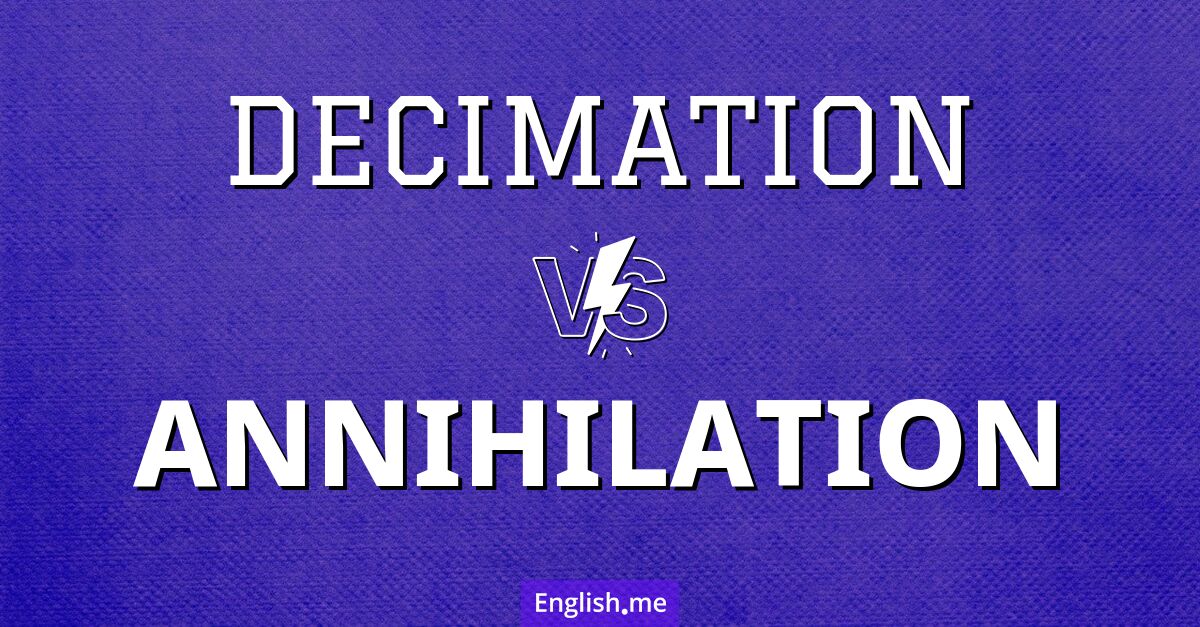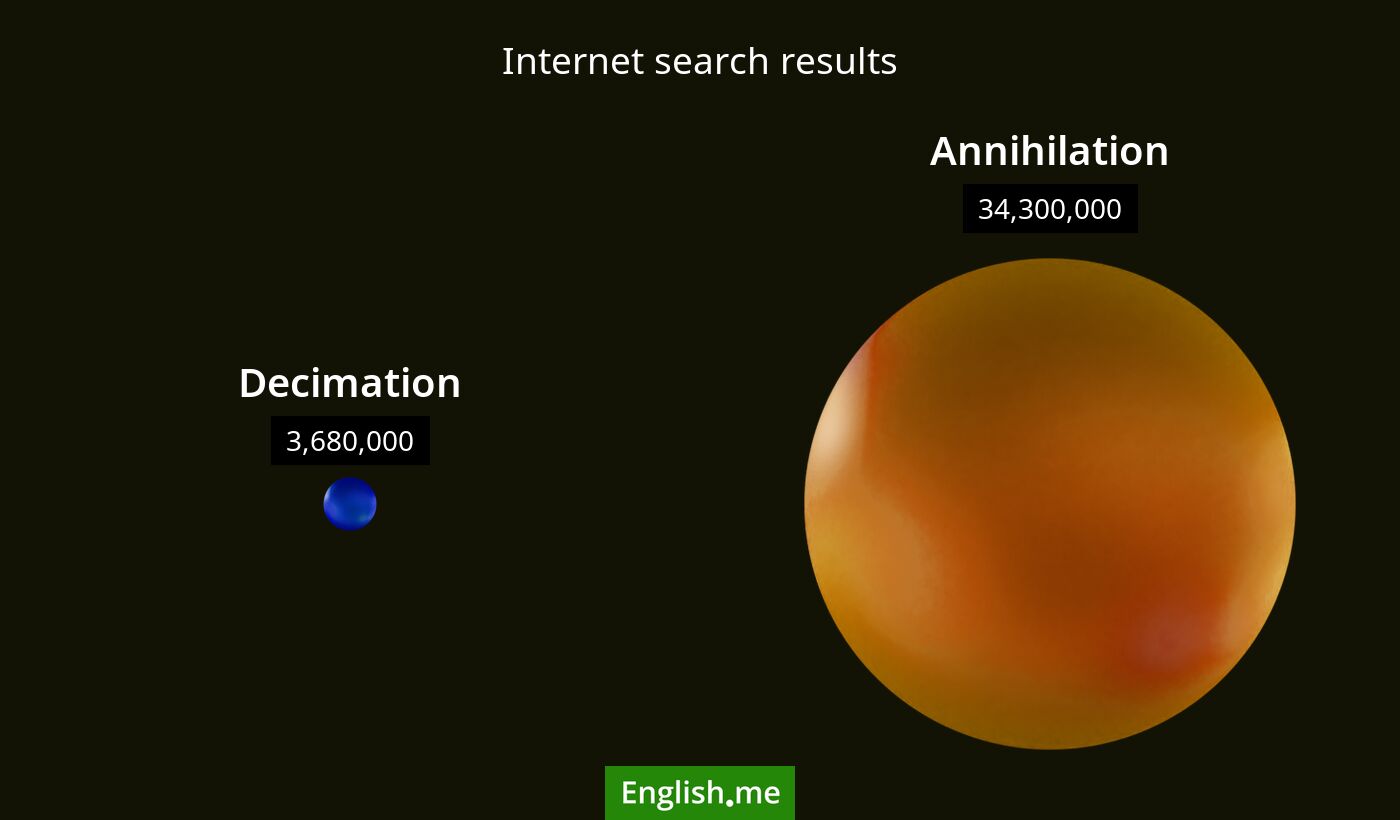"Decimation" vs. "annihilation": parsing the power in language
Reviewed and edited by  Lloyd Cooper 30/09/2024, 12:57
Lloyd Cooper 30/09/2024, 12:57
English.me team member

 What is similar?
What is similar?
Both terms refer to destruction or reduction of something, often applied in contexts of warfare or catastrophes.
 What is different?
What is different?
Decimation originally meant reducing by a tenth, but now it often implies severe damage. Annihilation means complete destruction or obliteration.
 Which one is more common?
Which one is more common?

 Examples of usage
Examples of usage
Decimation- The wildlife population suffered decimation due to the forest fires.
- The economic sanctions led to the decimation of local businesses.
- The town faced total annihilation after the devastating bomb attack.
- The concept of nuclear war brings fears of global annihilation.

 English
English español
español française
française italiano
italiano deutsche
deutsche 日本語
日本語 polski
polski česky
česky svenska
svenska Türkçe
Türkçe Nederlands
Nederlands